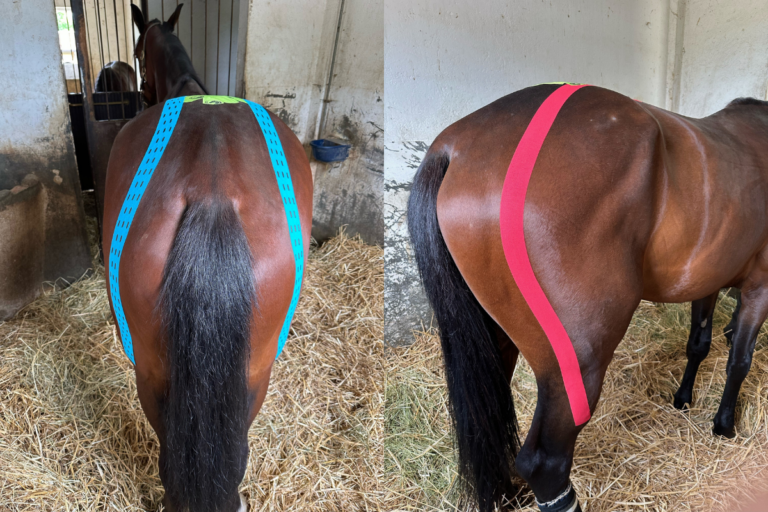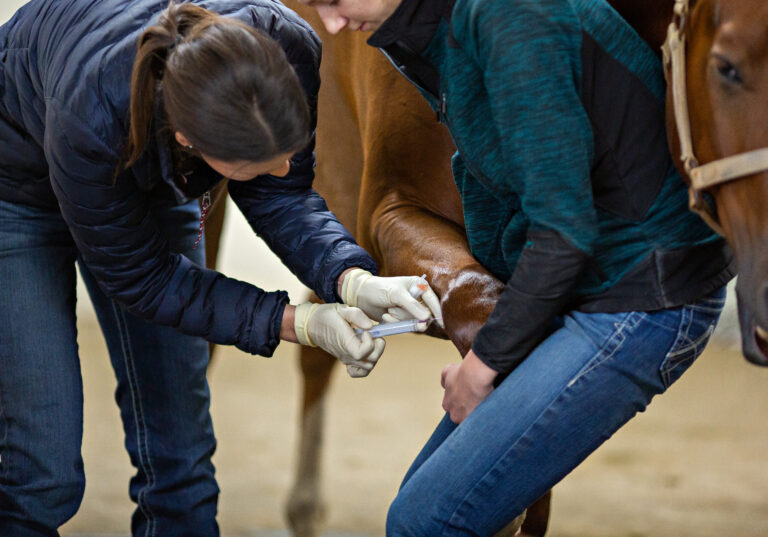
The incidence of equine influenza virus (EIV) has been trending upward since 2008, with considerable spikes in recent years.1,2 As a leading research-driven biopharmaceutical company that develops, manufactures and markets a broad range of animal health medicines, products and services, Merck Animal Health has been actively working with researchers to study this trend, the reasons behind it and the best strategies for protecting horses against this highly contagious disease.
Three findings are clear:
- Equine influenza virus (EIV) strains are undergoing significant antigenic drift (evolutionary changes or mutations that lead to new virus strains the immune system doesn’t recognize), and this antigenic drift is the most probable cause for the increased incidence of influenza vaccine failure in the U.S.;3
- Ongoing sequencing of real-world influenza isolates infecting U.S. horses demonstrates significant antigenic differences in field isolates and isolates contained within most vaccine strains, thus inhibiting their ability to offer adequate protection against current circulating strains of equine influenza;
- Now more than ever, choice of influenza vaccine matters. Studies reveal only the Florida ’13 vaccine strain aligns well with current field strains causing infection.
Vaccine Strains Matter—
Genetic Sequencing Tells Us So
Genetic sequencing is used to understand the significance of antigenic drift and its impact on vaccine effectiveness. Different strains of EIV are compared by sequencing the hemagglutinin (HA) gene. HA contains the receptor-binding sites that enable the influenza virus to attach to host cells. Vaccination produces antibodies that bind to the HA, which inhibits the virus from attaching to the host cell. If antigenic drift decreases binding of vaccine antibodies with the HA glycoprotein at these “key sites,” it may cause reduced vaccine protection or even a total lack of protection.
“While genetic analysis (sequencing) compares various strains and determines their homology (similarities), the number of single amino acid changes is not what’s relevant,” explains Kyuyoung Lee, DVM, MPVM, PhD, University of California, Davis. “Instead, the important focus is the position of the amino acid changes as they pertain to immunodominant sites, which is determined through sequencing.”
Dr. Lee has conducted research evaluating whether U.S. influenza vaccine failure rates were a result of antigenic drift or the introduction of foreign strains.
“Antigenic drift of EIV in the United States is the likely reason for vaccine failure and vaccine strains should be updated,” he concludes.
To further evaluate these findings, Merck Animal Health conducted a wide-ranging sequencing study comparing commercially available inactivated influenza vaccine strains to 54 positive equine influenza samples isolated through the Equine Respiratory Biosurveillance Program. Case samples from influenza outbreaks in 20 U.S. states were collected between February 2013 and July 2020 from horses ranging in age from 6 months to 17 years.1 The results revealed wide variation among vaccines.4 Investigators found:
- Amino acid sequencing revealed that all 54 positive samples were identical at eight key sites of the HA glycoprotein;
- Only the Florida ’13 vaccine strain had 100% alignment with all eight of these key sites;
- The Ohio ’03 vaccine strain was similar at two key sites with the 54 positive samples;
- Kentucky ’97 shared no key site similarity with the 54 positive samples.
Vaccine Timing and Choice
Critical to Controlling EIV
With data clearly indicating that equine flu season ranges from December through April,2 veterinarians may benefit from critically evaluating the optimal time to administer biannual EIV vaccines. Giving the EIV vaccine even one or two months earlier in the year could make a significant difference for the horse. Additionally, data indicates many horses are undervaccinated, receiving just one EIV vaccination per year (or less),1 which further complicates efforts to contain this highly infectious virus.
“With EIV on the rise, reconsidering timing is another aspect of evolving our vaccination practices along with the virus,” says Duane Chappell, DVM, an equine professional veterinary services team member at Merck Animal Health. “And we can’t underestimate the role of vaccine choice considering the documented impact of antigenic drift on vaccine effectiveness. The good news: we have strong evidence to support the role of Florida ’13 in combating today’s equine influenza threat.”
The PRESTIGE line of influenza-containing vaccines includes Florida ‘13 of the clade 1 family and Richmond ‘07 of the clade 2 family, meeting current World Organisation for Animal Health (OIE) and American Association of Equine Practitioners (AAEP) guidelines for clade 1 and clade 2 strains.
The Equine Respiratory Biosurveillance Program is an ongoing national surveillance study managed by Merck Animal Health in partnership with the UC Davis Equine Infectious Disease Research Laboratory. The program comprises one of the largest collections of equine influenza isolates in the United States. For more information, veterinarians may contact their Merck Animal Health sales representative or Veterinary Professional Services at 866-349-3497 or visit www.merck-animal-health-usa.com/species/equine.
About Merck Animal Health
For 130 years, Merck, a leading global biopharmaceutical company, has been inventing for life, bringing forward medicines and vaccines for many of the world’s most challenging diseases. Merck Animal Health, a division of Merck & Co., Inc., Kenilworth, N.J., USA, is the global animal health business unit of Merck. Through its commitment to The Science of Healthier Animals®, Merck Animal Health offers veterinarians, farmers, pet owners and governments one of the widest ranges of veterinary pharmaceuticals, vaccines and health management solutions and services as well as an extensive suite of digitally connected identification, traceability and monitoring products. Merck Animal Health is dedicated to preserving and improving the health, well-being and performance of animals and the people who care for them. It invests extensively in dynamic and comprehensive R&D resources and a modern, global supply chain. Merck Animal Health is present in more than 50 countries, while its products are available in some 150 markets. For more information, visit www.merck-animal-health.com or connect with us on LinkedIn, Facebook, and Twitter at @MerckAH.
References
1. Merck Animal Health and University of California, Davis, School of Veterinary Medicine (Nicola Pusterla). Infectious Upper Respiratory Disease Surveillance Program. Ongoing research 2008-present.
2. Vaala, W.; Barnett, D.C.; James, K.; Chappell, D.; Craig, B.; Gaughan, E.; Bain, F.; Barnum, S.M.; Pusterla, N. Prevalence Factors Associated with Equine Influenza Virus Infection in Equids with Upper Respiratory Tract Infection from 2008 to 2019. AAEP Proceedings. 2019 Vol 65.
3. Lee, K.; Pusterla, N.; Barnum, S.; Martinez-Lopez, B. Is Current Vaccine Failure of Equine Influenza Virus Due to Evolution of Endemic Strains or Introduction of Foreign Strains? AAEP Proceedings. 2019 Vol 65.
4. Data on file, Merck Animal Health (2013-2020).




